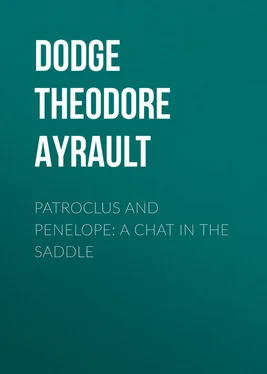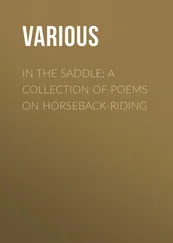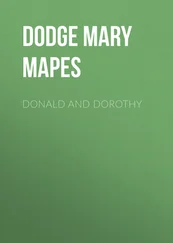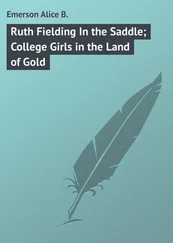Theodore Dodge - Patroclus and Penelope - A Chat in the Saddle
Здесь есть возможность читать онлайн «Theodore Dodge - Patroclus and Penelope - A Chat in the Saddle» — ознакомительный отрывок электронной книги совершенно бесплатно, а после прочтения отрывка купить полную версию. В некоторых случаях можно слушать аудио, скачать через торрент в формате fb2 и присутствует краткое содержание. Жанр: foreign_antique, foreign_prose, на английском языке. Описание произведения, (предисловие) а так же отзывы посетителей доступны на портале библиотеки ЛибКат.
- Название:Patroclus and Penelope: A Chat in the Saddle
- Автор:
- Жанр:
- Год:неизвестен
- ISBN:нет данных
- Рейтинг книги:3 / 5. Голосов: 1
-
Избранное:Добавить в избранное
- Отзывы:
-
Ваша оценка:
- 60
- 1
- 2
- 3
- 4
- 5
Patroclus and Penelope: A Chat in the Saddle: краткое содержание, описание и аннотация
Предлагаем к чтению аннотацию, описание, краткое содержание или предисловие (зависит от того, что написал сам автор книги «Patroclus and Penelope: A Chat in the Saddle»). Если вы не нашли необходимую информацию о книге — напишите в комментариях, мы постараемся отыскать её.
Patroclus and Penelope: A Chat in the Saddle — читать онлайн ознакомительный отрывок
Ниже представлен текст книги, разбитый по страницам. Система сохранения места последней прочитанной страницы, позволяет с удобством читать онлайн бесплатно книгу «Patroclus and Penelope: A Chat in the Saddle», без необходимости каждый раз заново искать на чём Вы остановились. Поставьте закладку, и сможете в любой момент перейти на страницу, на которой закончили чтение.
Интервал:
Закладка:
VII
One of the most distinctly promising features of the athletic tendencies of to-day is the mania for the saddle. Fifteen years ago, the boys along the Boston streets used to hoot at your master, Patroclus. Not, indeed, that he had a poor seat or needed to "get inside and pull down the blinds," as the London cad might phrase it, for a good or bad seat was all alike to them; rather at the wholly unusual sight of a man on horseback – outside of politics.
But the number of good horsemen, and horsewomen too, is growing every day. Here comes a couple at a brisk round trot. How can we notice the lad, Patroclus, when the lassie looks so sweetly? In her neat habit, with dainty protruding foot and ankle, sitting her trappy-gaited mount with ease and grace, the bloom of health fairly dazzling you as she rushes by, so that you doubt whether it be her pretty eye and white teeth or her ruddy skin and happy face which has set even your ancient heart a-throbbing, how can a woman look more attractive?
But the alluring sight is not long-lived. Following hard upon them comes, not the first rider who has chased a petticoat, a young Anglomaniac. He fancies that his hunting-crop, his immaculate rig, and his elbows out-Britishing the worst of British snobs, as he leans far over his pommel, make him a pattern rider. You can see the daylight under his knees. A sudden plunge would send him, Lord knows where! Haply his dock-tailed plug remembers the shafts full well and steadily plods ahead. But bless his little dudish heart! he will learn better. As his months in the saddle increase, he will find his seat as well as his place. We Americans are the making of an excellent race of horsemen. It is a pleasure to see the increase in the number of promising riders who seek the western suburbs every day. We shall all ride, as we manage to do everything, well, – after a while. There is of course a lot of rubbish and imported – rot, shall we call it? But what odds? so there is in art, music, politics, religion.
VIII
You see the corner of the lane, Patroclus, while I have been thus musing, and your lively ear and instinctively quickened gait rouse my half-dazed thoughts. Here we are. Shall we take our accustomed canter? You always wait the word, though you are eagerness itself, for you do not yet know when I want you to start, or which foot I may ask you to lead with. Though, indeed, you will sometimes prance a bit, and change step in the alternate graceful bounds of the passage, to invite and urge my choice. The least pressure of one leg, and off you go, leading with the opposite shoulder. And you will keep this foot by the mile, Patroclus, or change at every second step, should I ask you so to do. You need but the slightest monition of my leg, and instantly your other shoulder takes the lead. I see you want to gallop, boy! But not quite yet. You must not forget that you have been taught, as they say in Kentucky, to canter all day long in the shade of an apple tree, if so be it your master wishes. You shall have your gallop anon. But you must never forget that a horse who can only walk or go a twelve-mile trot or hand-gallop, though he may lead the hunt cross-country, is an unmitigated nuisance on the road. Slow and easy gaits are as valuable to the park-hack as long wind and speed to the racer. And although Boston, as yet, boasts no Rotten Row, are not the daily rides through its exquisite environments the equivalent of the canter in that justly celebrated resort, rather than the mere country tramp upon a handy roadster or the ride to cover on a rapid covert-hack? And yet our imitation of our British cousins has approximated less to the pleasure ride than to the cross-country style. Perhaps, in our eagerness to convince ourselves that we have learned all there is worth knowing in the art, we have aped what is confessedly the finest of horseback sports, and forgotten the more moderate fashion of Hyde Park. Let us remember that we can saunter on the road every day, while riding to hounds is for most of us a rarish luxury.
IX
Because a horse can go well to hounds, it does not follow that he is fit for park or road work any more than the three-year-old who wins the Derby or St. Leger is fitted for a palfrey. A horse whose business it is to run and jump must have his head; while a horse, to be a clever and agreeable hack, should learn that the bit is a limitation of his action, and that the slightest movement of the hand or leg of the rider has its meaning. What is impossible in galloping over ploughed fields is essential to comfort on the road. In the field, everything must be subservient to saving the horse; the rider's comfort is the rule of the park. It is every day that we may see a rider who deems his excellent hunter a good saddle beast, when, however clever cross-country, he is absolutely ignorant of the first elements of the manège . He forgets that each is perfect in his own place and may be useless in the other's.
I am the owner of a fine-bred mare, whom I have as yet had no opportunity to school. She is the perfect type of a twelve-stone hunter. After hounds she will attract the eye of the whole field for distinguished beauty, and ridden up to her capacity, can always be in the first flight. She has speed, endurance, and fine disposition, is as sound and hardy as a hickory stick, and in her place unsurpassed. Almost any of the horsemen of to-day's Modern Athens would select this mare in preference to Patroclus. And yet, a four-in-hand of her type, as she now is, Tantivy coach thrown in for make-weight, are not worth one Patroclus for real saddle work, because she has no conception of moderate gaits. She is bound to go twelve miles an hour if you let her out of a walk, or fret at the restraint. I can ride Patroclus twenty-five miles without fatigue. If I ride the mare ten miles, I come in tired, drenched with heat, and probably with my temper somewhat ruffled, while she has fretted to a lather more than once, and we have both been so hot during the entire ride that, if the day is raw, it has been dangerous to ease into a walk. If I ride Patroclus over the same ground in the same time, we shall both come in fresh as a daisy, dry, and each well-pleased with the other. While this mare can gallop fast and is easy and kind, a man must work his passage to make her canter a six-mile gait. She has no more ambition than Patroclus, but she does not curb it to the will of her rider. With a knowledge of all which, however, most of our young swells would select the mare for simple road-riding, because she looks so like a thoroughbred hunter, and rather suggests the impression that they habitually ride to hounds. As well saunter in the park in a pink coat and with "tops carefully dressed to the color of Old Cheddar."
X
The manège need not mean all the little refinements of training which, however delightful to the initiated, are unnecessary to comfort or safety. But no horse can be called a good saddle beast whose forehand and croup will not yield at once to the lightest pressure of rein or leg. Most horses will swing their forehands with some readiness, if not in a well-balanced manner. But not many are taught to swing the croup at all; very few can do so handily. The perfect saddle horse should be able to swing his croup about in a complete circle, of which one fore foot is the immovable centre, or his forehand about the proper hind foot, in either direction at will. He should come "in hand," that is, gather his legs well under him, so as to be on a perfect balance the moment you take up the reins and close your legs upon him. He should in the canter or gallop start with either foot leading, or instantly change foot in motion at the will of his rider. He should have easy, handy gaits, the more the better, if he can keep them distinct and true. These accomplishments, added to a light mouth and a temper of equal courage and moderation, or, in short, "manners," make that rare creature, – the perfect saddle horse.
Читать дальшеИнтервал:
Закладка:
Похожие книги на «Patroclus and Penelope: A Chat in the Saddle»
Представляем Вашему вниманию похожие книги на «Patroclus and Penelope: A Chat in the Saddle» списком для выбора. Мы отобрали схожую по названию и смыслу литературу в надежде предоставить читателям больше вариантов отыскать новые, интересные, ещё непрочитанные произведения.
Обсуждение, отзывы о книге «Patroclus and Penelope: A Chat in the Saddle» и просто собственные мнения читателей. Оставьте ваши комментарии, напишите, что Вы думаете о произведении, его смысле или главных героях. Укажите что конкретно понравилось, а что нет, и почему Вы так считаете.












